Unsuccessful traders think in unconstructive ways. And the tougher things get, the more unconstructive their thinking gets. They burrow deeper into poor habits which are driven by thinking/focusing on the wrong thing.
Successful people and traders think differently. When the going gets tough, they think about different things than the unsuccessful trader. Great traders focus on things that get them back to following their trading plan quickly.
If you want to win, change how you think. It’s actually pretty quick and simple. Here’s how.
Most people who enter trading are constantly thinking things like:
- I’m going to be a great trader
- I’m going to be rich
- I’m going to kill it today
- I’m going to make $1000 today
- I’m not going to lose money today
This thinking is Focused on the “What.” While this type of thinking can help define a goal, it will mostly hurt you as a trader while you are actually trading. It’s totally unconstructive and keeps you focused on the wrong thing, instead of the right thing which is HOW to do it.
Eradicate WHAT thinking as much as possible.
Instead, try to think/focus more on “How” and “Why.”
For example, instead of thinking things like “I am going to kill it today,” think more along the lines of:
- I have worked hard on my trading plan, it works, so I always follow it.
- I do my pre-trade routine every day so I am in the best mind frame possible when I start trading.
- I talk through every trade I make, going through my checklist to make sure the trade aligns with my plan.
- I do all this because following my plan is important for success in trading and for my mental health. If I want to have time and money to enjoy life, this is what I need to do.
- The last few days I have been overeager to trade, jumping into trades too early. Today I will wait until the signal occurs, and then wait one extra second to make sure I am not jumping the gun. (An example of if you noticed a recurring mistake recently.)
Interested in day trading stocks? Learn how and when to capitalize on price patterns that occur multiple times per day in stocks. Learn precise patterns to watch for that present a favorable risk/reward opportunity in the Price Action Stock Day Trading Course.
Exercise to Start Thinking Like a Successful Trader
I bombard myself with these types of HOW and WHY thoughts all day, constantly, any time I remember, about anything I want to get better at. Trading is a vicious game with a very low success rate. If you want to make money at this, you need to be in top form, putting in more work than others to get sharper and sharper in ever-changing conditions.
The WHAT thoughts are more likely to drive impulse and inflame existing bad habits. The HOW and WHY thoughts actually provide a path to what you want. They remedy problem areas and help avoid trading mistakes before they happen.
As you notice generic WHAT thoughts, throughout the day and during trading, try to switch as much as possible to HOW and WHY thinking. Constantly, and always.
Do it so much that it becomes your natural way of thinking. When you have WHAT thoughts (which do help define what we want or don’t want) put HOW and WHY thoughts right after them, always.
And if a goal or outcome is really important to you, focus on those HOW and WHY thoughts all the time. Propel yourself forward with them.
Sure, think about your end goal occasionally, but most people are so obsessed with thinking about results that there is no room to focus on how that will actually be accomplished. They feel like they are constantly working because their mind is always thinking about the goal/results, but they aren’t actually making steps toward that goal, they are just mentally spinning their wheels.
During a trade you may think “I’m going to make so much money on this trade!”
Is that a constructive thought? Is it a WHAT or HOW thought? Take a moment to answer. Learn to recognize productive and unproductive thoughts, so you can switch out unproductive ones for productive ones.
That is a WHAT thought.
To make sure you actually do trade well (according to your plan) if you hear yourself say something like that, immediately switch to HOW and WHY thinking which is something like “My plan says my exit point is X and I can implement a trailing stop loss if Y happens. I will stick to this because over many trades my backtesting/experience has revealed this maximizes monthly returns.”
The former thought (about so much money) is not constructive. It will probably cause you to hold onto a trade longer than you are supposed to, may cause you to remove your stop loss or target, or take a larger position size than you are supposed to.
The latter thought is more productive; it is a guide for what to do.
Make HOW thinking your primary thought process for any high-pressure situation or goal. Do this by practicing it constantly throughout the day whenever you remember.
Practice it often and it will become second nature. You’ll be cooler under fire, and it will actually free up your mind to execute, as practiced, when the time comes. You’ve talked through what needs to be done, so when the time comes you’ll act it with minimal mistakes.
You’ve probably heard “Don’t think about the money” and this is how you do that. It’s how pro golfers can stand over a put worth $5 million, or not crack at the poker table with huge money on the line, or how a trader can increase their position size without breaking a sweat. Your mind is trained to think about your routine and process, how to best execute, not the result.
Want to learn how to swing trade stocks? Catching explosive moves that often run 20% or more within days and weeks of entry? Check out the Complete Method Stock Swing Trading Course.
Examples of How Successful Traders Think Differently Than Unsuccessful Traders
We all have random thoughts pass through our minds. So it is not that successful traders never have impulsive or sabotaging thoughts pass through their minds. They do, but they can quickly identify them and start thinking more productively.
Here are some examples of unproductive thoughts, coupled with more productive thoughts. If you notice the unproductive thoughts (these were all thoughts I had in the last few days while trading), note them and then bring the more productive thoughts to mind.
Unproductive and Productive Thinking Before a Trade
I suggest writing down the little unproductive and something sabotaging thoughts that go through your own mind while trading. This way you are aware of them and can more easily identify them when they pop up in the heat of the moment before, during, or after a trade.
Also, write down your own productive thoughts that are applicable to you and your strategies. I have just included some of my own productive thoughts that I tell myself, but you may want to write down your own to have handy while you are trading.
Unproductive Thoughts:
Is this setup the one (that will run)?
(Maybe) It could go.
It kinda looks like a X/Y/Z pattern.
I could maybe make some money here.
I’ll just jump for a bit.
Productive Thought (replace the above with something like this):
Is this a really good setup with good reward:risk potential and minimal red flags? If yes, I’ll take it. If not, no thanks.
Unproductive and Productive Thinking During a Trade
Unproductive Thoughts:
What should I do?
It might keep going.
It’s going to reverse, I know it.
Why is it doing that!?
It has to go up/down!
I’ll give it a bit more room.
I’m just going to get out.
Productive Thought:
What are the rules in this situation? (if you don’t have rules for this situation, add some to your plan) I’ll follow the rules because that produces the best results based on my strategy.
Unproductive and Productive Thinking After a Trade
Unproductive Thoughts:
Ah ****, I missed that move!
Stupid market.
I’m awesome!
I suck at this.
That should have been a winner
Productive Thought:
Did I follow my rules? Did I trade according to my skill and mental faculties? If I did, that is great. If I didn’t, that is a mistake regardless of whether the trade won or lost.
You can also check out How to Focus on a Trading Process Instead of Fixating on Money if thinking about money too much causes issues in your trading.
How Winning Traders Think – Final Word
Start incorporating these changes in your thinking and you will start to notice a reduction in mistakes and impulsive trades. It won’t happen overnight, because you may not even be aware that these unproductive thoughts are driving your behavior.
It will take some practice to start catching them while trading and then having the self-awareness to realize it is happening and switch to some more productive thoughts you have written out for yourself. But if you can do it, results should improve accordingly.
By Cory Mitchell, CMT
Want to learn how to swing trade currencies, including strategies, and how to adapt to changing market conditions? Check out the Forex Swing Trading Course.
Disclaimer: Nothing in this article is personal investment advice, or advice to buy or sell anything. Trading is risky and can result in substantial losses, even more than deposited if using leverage.


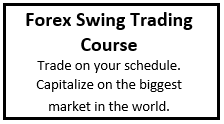
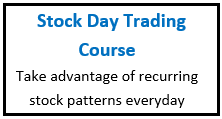
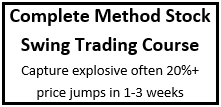
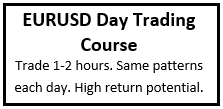
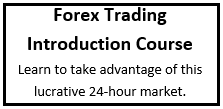
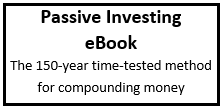
1 Comment
Leave your reply.